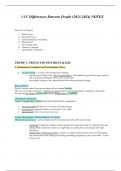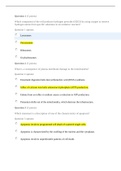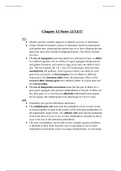Samenvatting
Summary Personality Psychology Notes 2023/2024
- Instelling
- Erasmus Universiteit Rotterdam (EUR)
The 1.1C Personality Psychology Notes contain detailed notes on the mandatory course literature for each theme. The notes are detailed and contain images/graphs/models from the books which the course uses in order to help students better understand various concepts. The purpose of the highlighted ...
[Meer zien]






